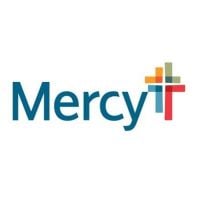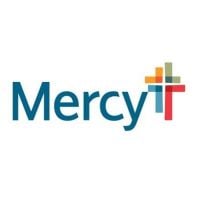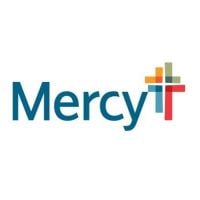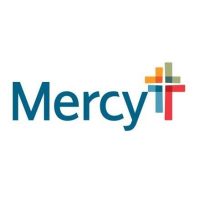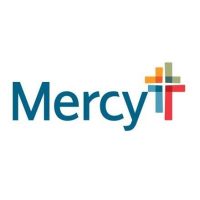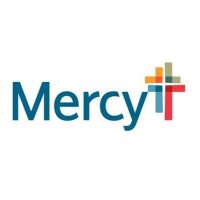SouthEast Behavioral Healthcare Socialization
Drug Rehab Center in Hollister, Missouri
Alta Mira Recovery Programs provides a multi-faceted approach to drug and substance abuse recovery with detox, inpatient, residential, and intensive outpatient levels of care, accredited and certified by NAATP, JCAHO, LegitScript, and the state of California, and accepting most major private health insurance plans.
About This Missouri Facility
SouthEast Behavioral Healthcare Socialization is a mental health treatment facility located in Hollister, Missouri. Their primary focus is on treating individuals suffering from mental health disorders, offering a range of services to help them on their path to recovery. The facility provides partial-hospitalization and outpatient levels of care, catering to the specific needs of each client. With their experienced staff and welcoming environment, SouthEast Behavioral Healthcare Socialization strives to provide a supportive and effective treatment experience for those seeking to overcome mental health challenges.
SouthEast Behavioral Healthcare Socialization offers a variety of services and treatment methods to address addiction and substance abuse issues. Through their partial-hospitalization and outpatient programs, individuals receive personalized care that includes therapy sessions, group counseling, and psychiatric evaluations. The facility integrates evidence-based treatments, such as cognitive-behavioral therapy, dialectical behavior therapy, and motivational interviewing, to help clients develop coping mechanisms and skills for relapse prevention. Additionally, SouthEast Behavioral Healthcare Socialization emphasizes the importance of socialization in the recovery process, offering opportunities for individuals to engage in recreational activities and community outings that foster connection and support.
Genders
Ages
Modality
Additional
Conditions and Issues Treated
Levels of Care Offered at SouthEast Behavioral Healthcare Socialization
This center offers a variety of custom treatment tailored to individual recovery. Currently available are Outpatient, Partial-Hospitalization, with additional therapies available as listed below.
Outpatient treatment programs provide drug and alcohol addiction treatment through individual sessions with a counselor, group therapy, 12-step meetings, and other activities to help individuals gain sober living skills. Most programs are designed for those individuals who have completed a medically supervised detoxification program and provide opportunities for clients to begin the process of early recovery.
Outpatient programs also offer a level of medical support as needed and psychological backing through therapy. Clients are encouraged to live at home, though there may be some flexibility regarding this requirement based on the circumstances and needs of each patient.
Outpatient treatment is perhaps the most common type of dual diagnosis program available. It does not pose a significant financial burden on patients. However, it is essential to note that outpatient treatment does not provide the support and supervision given in residential programs. Some addicts may need this level of support to maintain their sobriety.
Partial Hospitalization Program, or PHP, is a type of drug addiction rehabilitation in the patient’s home. Patients often have to come into SouthEast Behavioral Healthcare Socialization for treatment on weekday evenings and weekends. They must also attend an intensive outpatient program at least 9 hours per week while attending PHP. The patient will meet with a counselor or therapist to help them work through their addiction issues. This type of treatment is used for patients who can go out among society but are at risk of relapsing due to continued exposure to drugs or alcohol.
Therapies & Programs
Therapy sessions focused on the individual addict can provide much-needed guidance as they work toward overcoming their addiction. These types of sessions typically involve guidance from a therapist, who will help addicts identify and process their feelings and cravings.
During these sessions, addicts may develop plans for coping with the triggers that typically lead to relapse and learn how to avoid those triggers during their recovery process.
The main goal of family therapy for drug addiction is to create an environment where communication can occur without judgment, hostility, or blame that often occurs within a family.
Family therapy is a type of group problem-solving that aims to improve communication and relationships between the patient, their family, and sometimes friends. The therapist is with the family as they learn to communicate with each other differently, especially with the addict when s/he is using.
The family can learn to reduce their enabling behavior or rally together and support each other during tough times. The patient also learns how to deal with their addiction and maintain sobriety while interacting with the family.
Different types of addiction treatment services are available. Within this article, group therapy is of interest due to its high success rate compared to individual therapy. Group therapy settings are beneficial because they allow recovering addicts to build a strong support network.
Benefits of group therapy are:
- Reduces feelings of isolation
- Immediate access to social support in the form of fellow addicts in recovery
- Lowers risk of relapse
- Increases rate of sobriety
- Builds coping skills that can be applied to everyday life
Trauma Therapy is a form of therapy that involves working with a patient to help them process and understand the past trauma(s) in their life. The idea behind it is that while some people can experience traumatic events and not have lasting psychiatric symptoms, many others will. In these cases, memories of the event get hidden from consciousness but continue to influence how the person processes and copes with things in their life. They may avoid situations that resemble what happened or become suddenly angry or irritated to a situation that reminds them of a past event.
With the help of a therapist, people can go back over memories and experiences. This helps them understand why they are having problems coping with certain situations and how they can change how they think and react to things. This therapy is typically done using techniques such as visualization, discussion, and writing down thoughts and feelings.
Trauma therapists will work with clients to help them understand their past and present relationships. Many times, patients may believe that something is inherently wrong with them or that they are unworthy of love. A therapist aims to correct these negative feelings and behaviors by helping the person realize that their actions do not reflect who they truly are.
One of the main goals of trauma therapy is to help clients express their emotions and talk about what they are feeling. This benefits both to increase awareness of how certain events have impacted them in the past and enables patients to realize that they can make changes in their lives.
Cognitive Behavioral Therapy (CBT) is used by drug treatment centers to help addicts comprehend the causes of their substance abuse and the consequences that follow. Through CBT, clients learn to recognize and avoid high-risk situations and cope with challenging situations when they arise.
CBT treatment often includes a combination of individual therapy, group therapy, lectures, and other activities. The treatment’s goal is to help addicts gain self-control and maintain abstinence from drugs and alcohol over the long term so that an addict can get sober and lead a more productive life.
CBT is particularly effective in helping people overcome their drug problems, especially people whose drug abuse is motivated by self-defeating beliefs and emotions.
Additional Details
Specifics, location, and helpful extra information.
Hollister, Missouri 72160 Phone Number(870) 673-1633 Meta DetailsUpdated November 25, 2023
Staff Verified
Patient Reviews
There are no reviews yet. Be the first one to write one.
Hollister, Missouri Addiction Information
Opioid-related overdoses in Missouri have been increasing steadily for the past three decades. In 2018, more than 1,130 people in Missouri died from opioid abuse. Methamphetamines and marijuana abuse have surpassed opioid abuse in Missouri. Missouri is the number 1 methamphetamine manufacturer in the country with more than 27 meth labs per 100,000 people.
Treatment in Nearby Cities
- Trenton, MO (240.1 mi.)
- Washington, MO (180.4 mi.)
- Carrollton, MO (189.9 mi.)
- Saint Louis, MO (215.7 mi.)
- Warrensburg, MO (150.8 mi.)
Centers near SouthEast Behavioral Healthcare Socialization
The facility name, logo and brand are the property and registered trademarks of SouthEast Behavioral Healthcare Socialization, and are being used for identification and informational purposes only. Use of these names, logos and brands shall not imply endorsement. RehabNow.org is not affiliated with or sponsored by SouthEast Behavioral Healthcare Socialization.

